The rest of the ukulele’s basics match: it features all solid-wood construction with a very smooth satin finish, is made in California, has bone nuts and saddles, and sounds super sweet.
Let’s talk about that sweet sound and the tone for a second. I’m a big fan of Larrivee ukuleles in general, but am sold on the spruce top that was on the soprano I reviewed before. I think it added a lot of nuance to the tone that made it stand out. It’s not that the mahogany top is bad or anything – I think a lot of people would love it – I just prefer the spruce top.
Still, it does still sound really nice and it’s a breeze to play. The body is thinner than most tenor ukes and this makes for a slightly thinner, less boomy tone that’s a bit more even across the range. It also makes for a lighter ukulele and, while ukes aren’t exactly known for being heavy, a light one feels really nice under your arm.
The construction of the uke is solid, with obvious craftsmanship throughout. Larrivee has been known for making acoustic guitars of the highest quality for decades and they didn’t forget this when they started making ukuleles. This is every bit as high-end as their guitars, with lovely top, back, and sides that aren’t so figured they look fake, but not so plain they look cheap by any means. They also feature jet black ebony like you would find on many high-end guitars.
As far as decoration goes, the uke’s are fairly spartan. There aren’t rings of abalone or inlaid figures. The neck isn’t covered with an intricate design, either. The fretboard dots are small and the marquetry rosette and purfling are understated.
I like it. In a world where ukes have aesthetics that are trying to shout at you from the walls, these Larrivee ukuleles are content to feel and sound great. Eventually, people discover that, while some high-quality ukuleles also have fancy work, they’re built on TOP of a great-sounding ukulele. Others rely on aesthetics alone and pay less attention to the quality of the ukulele and that’s always a bummer. Larrivee spent almost all of their effort on the construction and tone of this ukulele, though, and the results speak for themselves through tone and feel.
And even if they aren’t the most flashy, they still have an understated class that goes from the woods to the monotone fretboard in an exercise of minimalism. The one flashy part that I’ll admit to really loving are the Grover open-back tuners that feature an engraving on the keys. It’s a classy, swoopy design that is borderline invisible to anyone but the player and I think that’s why I like it so much. Larrivee isn’t trying to make an ukulele that pleases the audience with its looks, but rather the person who bought and plays it. The woods aren’t ornate, but there is some subtle figuring that the player will appreciate when they stare at it (like you would with an instrument that sounds this good), and the keys are a little wink to the player. Let the audience hear your music all day long, but there’s an added bonus for the player. How rare for a company to do that!
Speaking of looking out for the player, the satin finish makes it a breeze to move around on the neck, the frets are top-notch, and the fretboard is like a black inkwell of potential. I have some guitars with deep, black ebony fingerboards, and my favorite part of them is how they reflect the player after a while with certain areas of the neck soaking up the oils from the player’s skin and making some areas a lot shinier than others. I wouldn’t classify it as wear per se, but more evidence of attention. A shiny fretboard is an often-played fretboard.
Those beautiful tuners function well, too, with solid tuning stability. The bridge is a tie-off, but not the traditional kind. With this one, you tie a knot and THEN put the string in rather than tying around the bridge. It’s a little different than standard bridges, or pin bridges, but the resulting bridge design looks clean and classy. There’s also less risk of dings that come with stringing accidents that naturally happen with other bridges.
Overall, I would say that these ukuleles are a fantastic deal without looking at the price. The construction is great, it feels like a solid player the second you pull it out of its case, the aesthetics are beautiful in their restraint, and the tone is very pleasant. My personal bias swings more toward the spruce top on this ukulele, but every player is different and, like I said before, just because I prefer the spruce doesn’t mean the mahogany is bad at all.
But let’s talk price: For a handmade tenor ukulele made in the USA, you’re probably looking at a price that hovers or goes over the 1K mark, but this one goes for $862.50. Trying to rationalize this, I figure that this has more to do with the lack of a long ukulele reputation. Brands that have been entrenched in the ukulele world have a solid reputation and people seek them out because of this. Larrivee aren’t that well-known in the ukulele world and perhaps this is why the price is so low – because the active demand is pretty low. But trust me: This won’t last for long. These are little beasts of ukuleles and Larrivee’s reputation will grow as time goes on and more and more people get some experience with them.
So check them out now! They’re really cool ukes that are a steal price-wise.

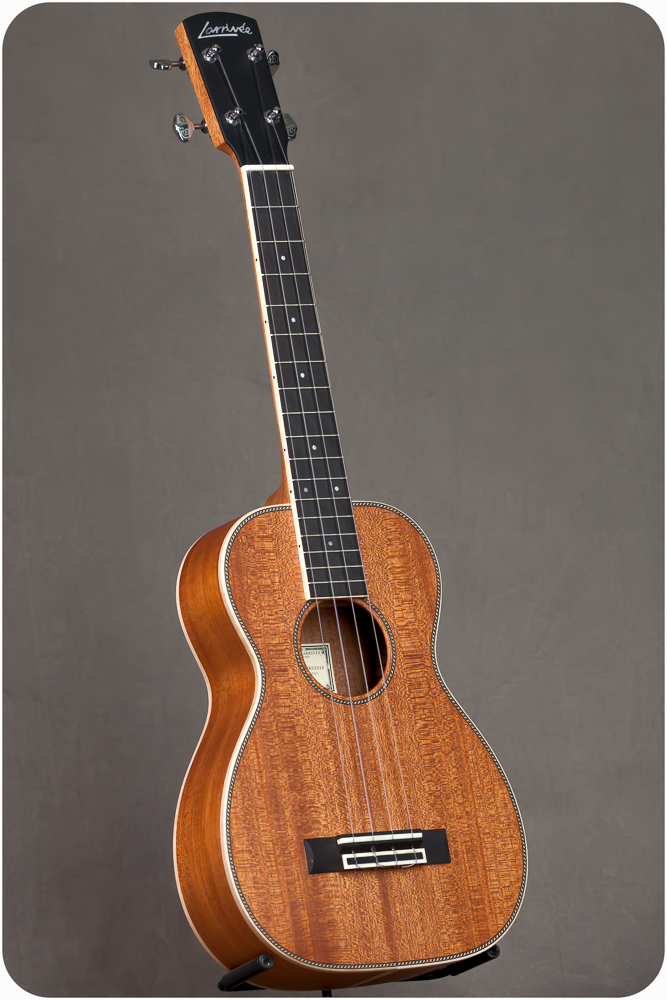
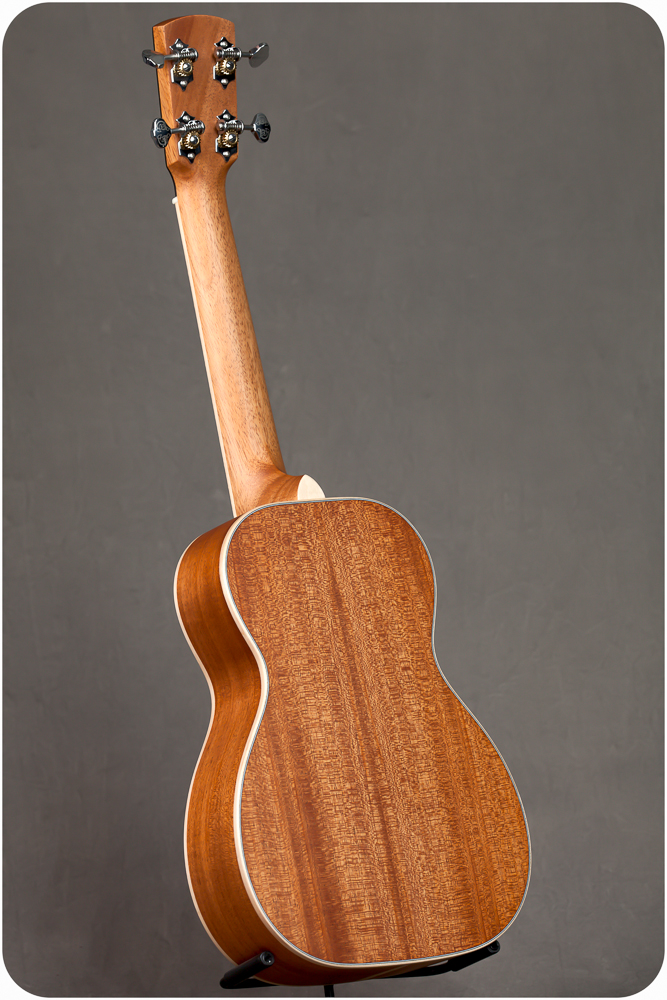
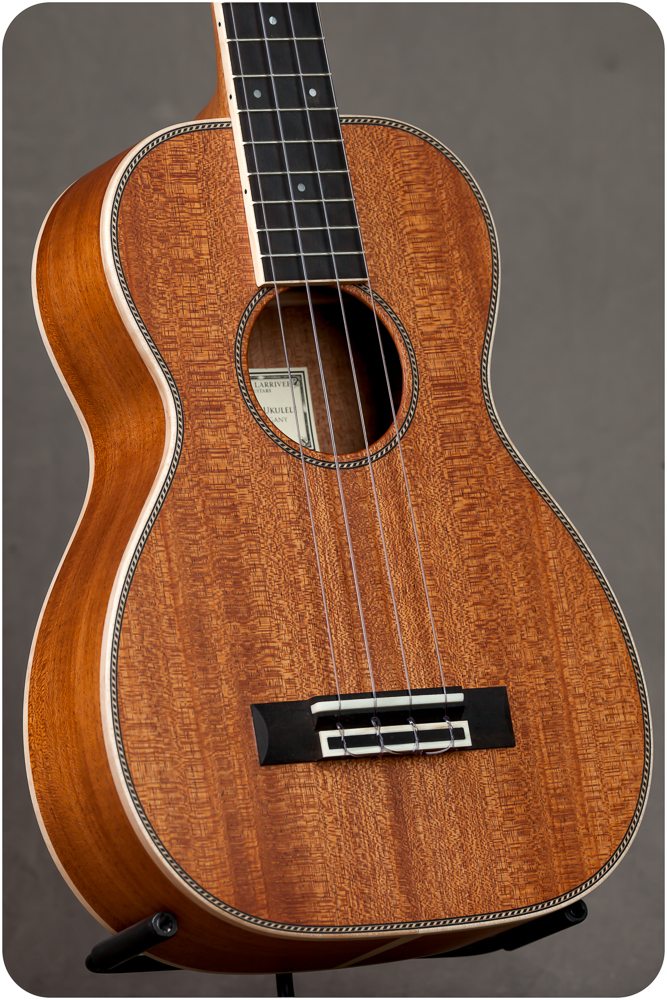
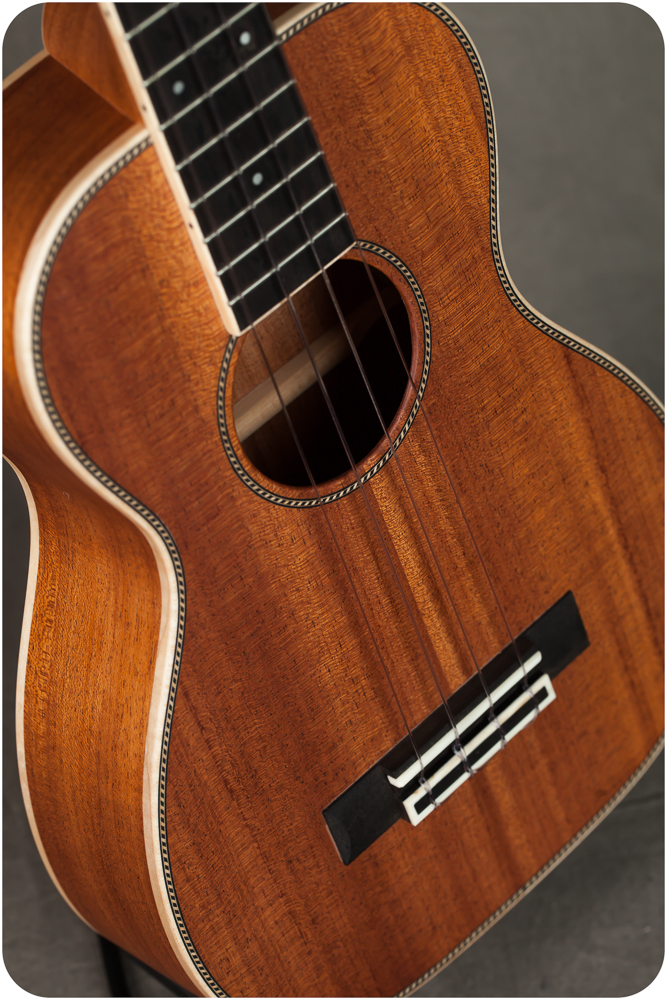
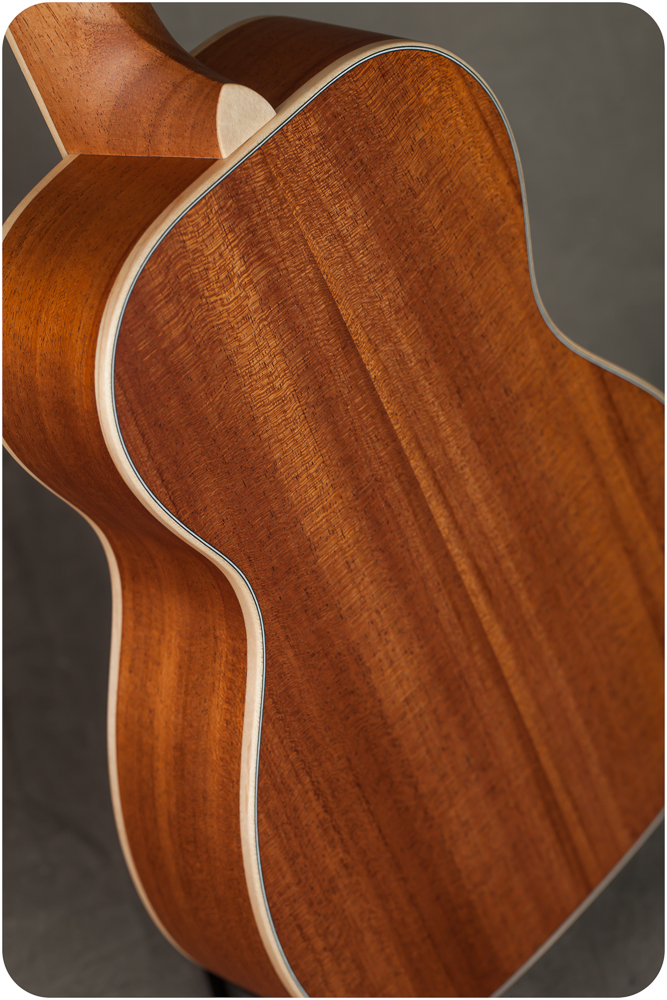
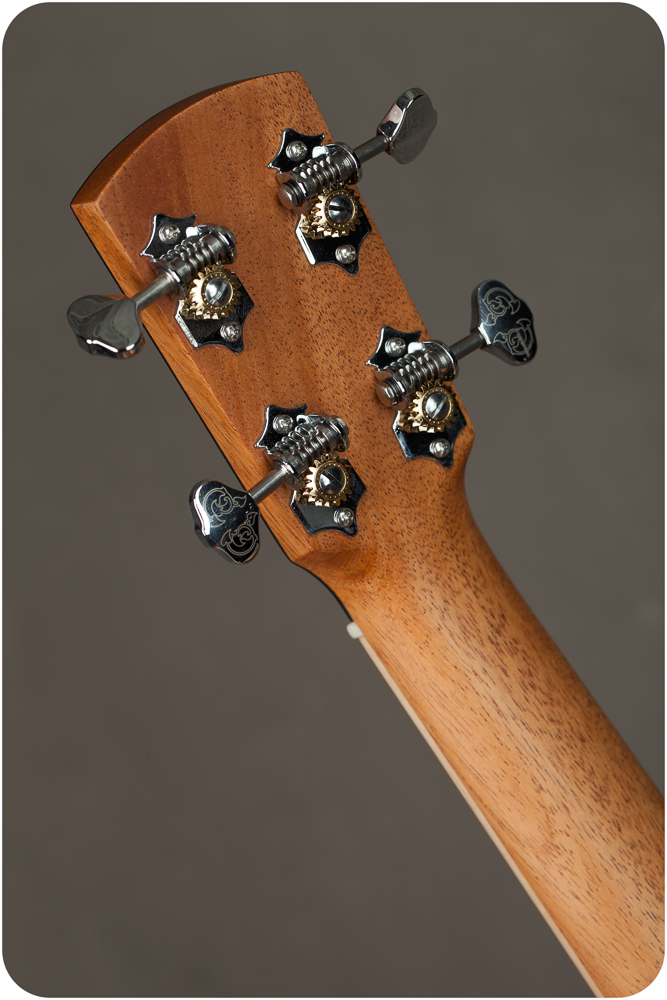
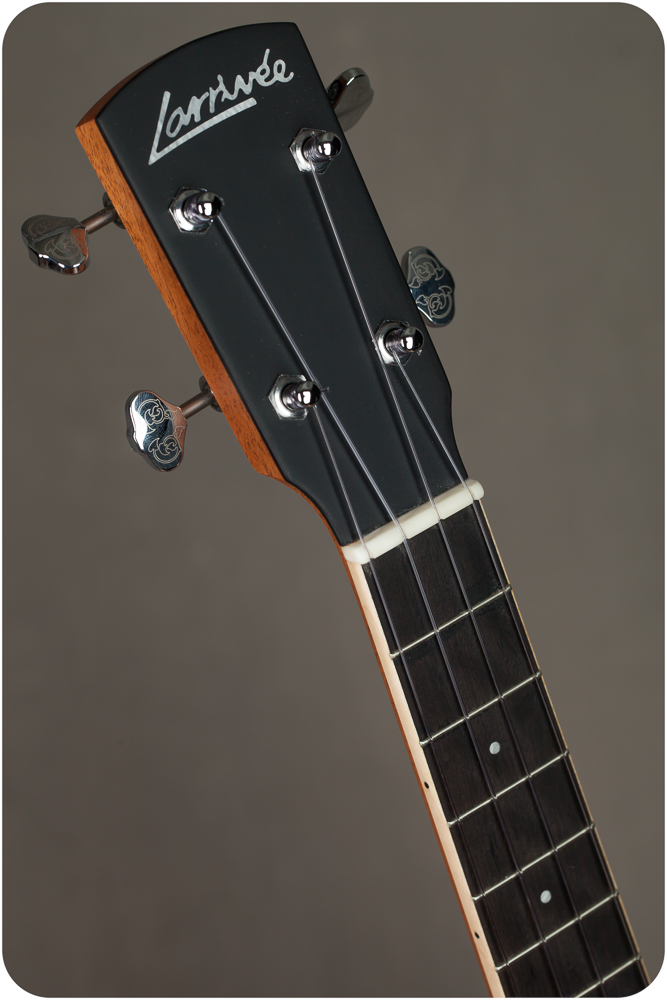
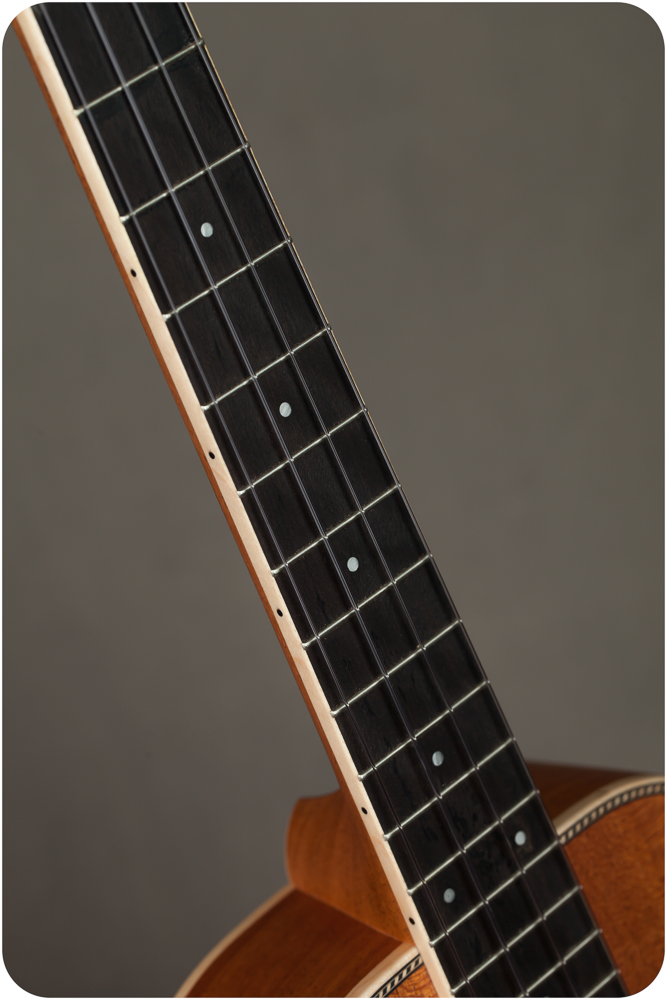
Comments 1
Very nice; but to me the strings sounded a little tight. I don’t know how else to describe it; sort of a tightness in the sound, but I guess it is only me.